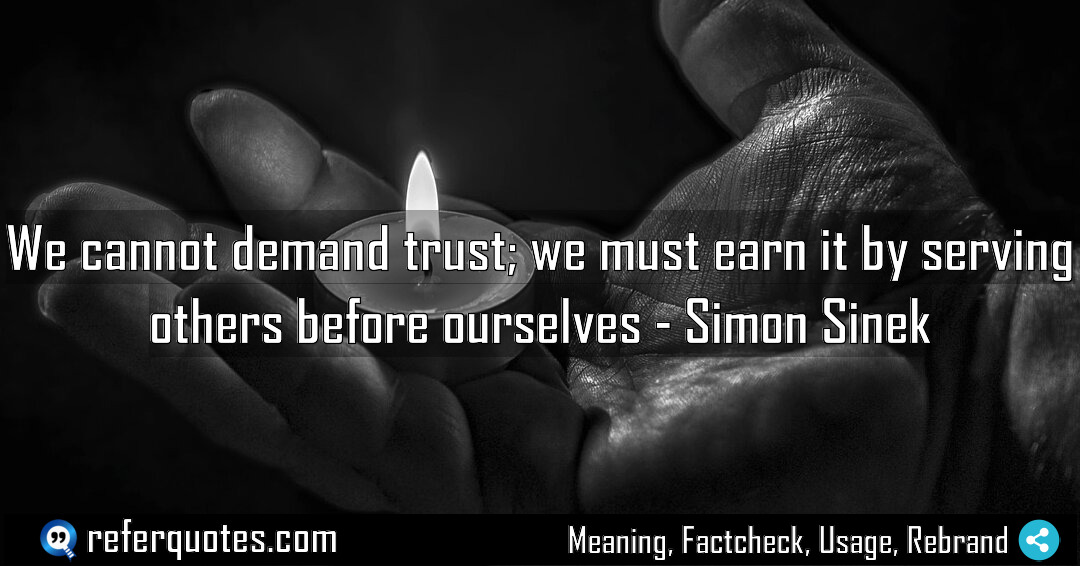We cannot demand trust; we must earn it… and that’s the whole game right there. It’s a simple but brutal truth I’ve seen play out in every team I’ve ever worked with. You don’t get trust because of your title; you get it by putting your people first.
Share Image Quote:Table of Contents
Meaning
At its core, this quote means that trust is a reward for selfless action, not a privilege of a position. It’s given, not taken.
Explanation
Let me break it down. The first part, “We cannot demand trust,” is a reality check for so many managers. You can’t just walk into a room and say “trust me” because you’re the boss. It just doesn’t work that way. The second part is the actionable part: “we must earn it by serving others before ourselves.” This is where the magic happens. It’s about creating what I call a Circle of Safety. When people see you consistently making decisions that protect them, that help them succeed, that put their well-being ahead of your own convenience… that’s when the real, unshakable trust forms. It’s a slow build, not a switch you flip.
Quote Summary
| Context | Attributes |
|---|---|
| Original Language | English (3668) |
| Category | Skill (416) |
| Topics | humility (61), service (57), trust (147) |
| Literary Style | clear (348), didactic (370) |
| Emotion / Mood | earnest (5), wise (34) |
| Overall Quote Score | 80 (256) |
Origin & Factcheck
This is straight from Simon Sinek’s 2014 book, Leaders Eat Last. It’s a concept deeply rooted in his study of organizational culture and leadership, not a misattributed internet quote. The title itself comes from the practice in the U.S. Marine Corps where officers eat only after their junior Marines have been fed.
Attribution Summary
| Context | Attributes |
|---|---|
| Author | Simon Sinek (207) |
| Source Type | Book (4032) |
| Source/Book Name | Leaders Eat Last: Why Some Teams Pull Together and Others Don’t (34) |
| Origin Timeperiod | 21st Century (1892) |
| Original Language | English (3668) |
| Authenticity | Verified (4032) |
Author Bio
Simon Sinek champions a leadership philosophy rooted in purpose, trust, and service. He started in advertising, then founded Sinek Partners and gained global attention with his TED Talk on the Golden Circle. He advises companies and the military, writes bestselling books, and hosts the podcast “A Bit of Optimism.” The Simon Sinek book list features Start With Why, Leaders Eat Last, Together Is Better, Find Your Why, and The Infinite Game. He speaks worldwide about building strong cultures, empowering people, and leading for the long term.
| Official Website | Facebook | X| Instagram | YouTube
Where is this quotation located?
| Quotation | We cannot demand trust; we must earn it by serving others before ourselves |
| Book Details | Publication Year/Date: 2014; ISBN/Unique Identifier: 978-1591848011; Last edition: Portfolio/Penguin, 2014; Number of pages: 368 |
| Where is it? | Chapter 8: The Courage to Do the Right Thing; Approximate page from 2014 edition |
